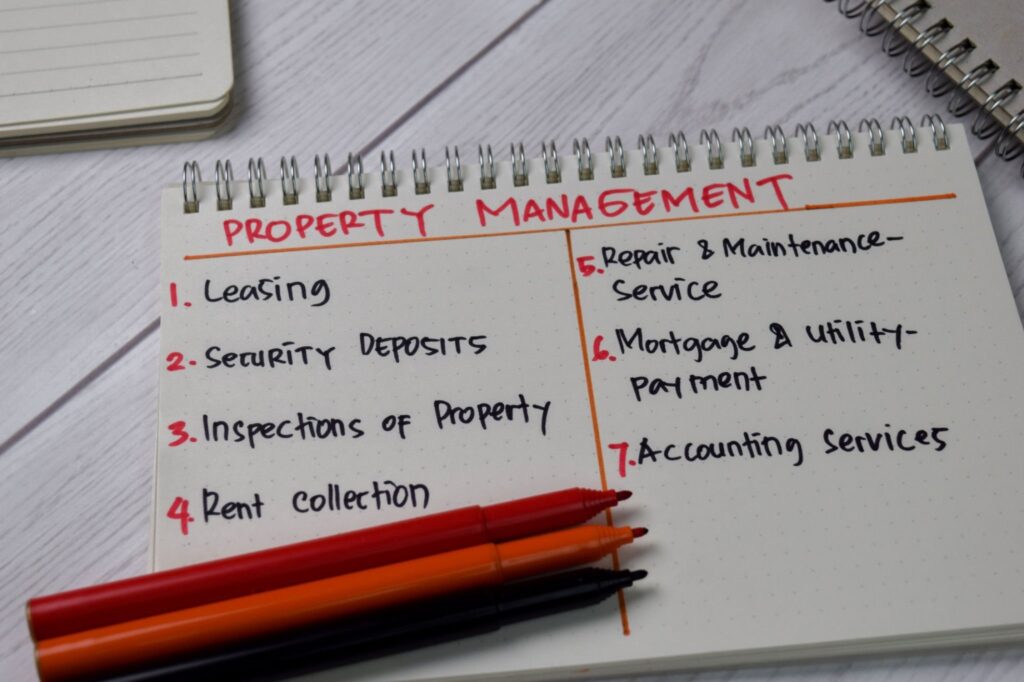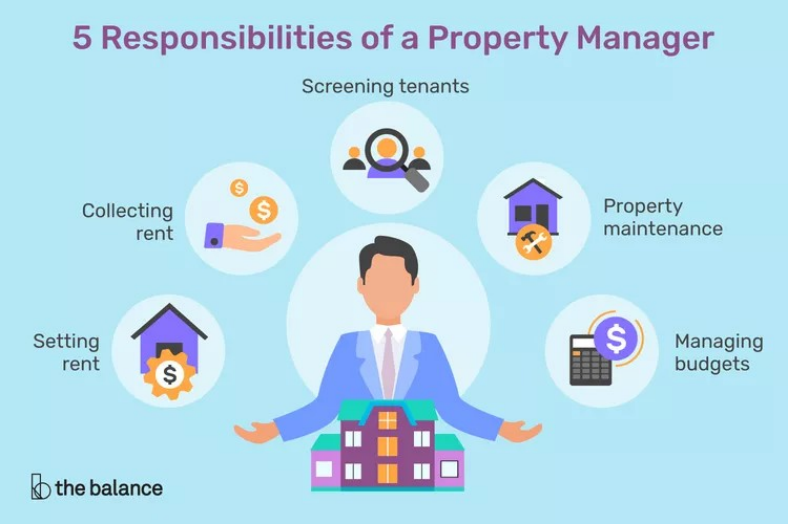Real Estate Management
Key Learning Objectives:
Introduction: Dive into the intricate world of real estate management. This section sheds light on the pivotal role of property management in preserving and augmenting the value of your real estate investments. From the nitty-gritty of day-to-day operations to the strategic decisions of DIY versus hiring a professional, you’ll uncover what it truly means to manage a property efficiently.
- Understanding Property Management: Learn about the multifaceted process of managing a rental property. Understand why effective property management is crucial for ensuring consistent rental income and preserving the long-term value of your property.
- DIY vs. Professional Property Management: Analyze the pros and cons of managing a property on your own versus hiring an expert. Grasp the intricacies of tenant relations, regulatory compliance, maintenance, and financial record-keeping.
- Key Responsibilities of a Property Manager: Delve deep into the essential duties of a property manager. From marketing the property to ensuring legal compliance, recognize what responsibilities are paramount for success.
A. Property Management

Figure title: Property Management Write on a Book with Keywords
Source: iStock:
Property management is the process of overseeing the day-to-day operations of a rental property, including marketing, tenant screening, rent collection, maintenance, and accounting. Effective property management is crucial to maximizing rental income and maintaining the long-term value of your investment. This section will discuss the benefits and drawbacks of DIY property management versus hiring a professional property manager and outline the key responsibilities of a property manager.

Figure title: What Is a Property Manager?
Source: The Balance Money
B. Managing the Property Yourself vs Hiring a Professional Property Manager

Figure title: Young Pregnant Woman Painting Nursery Room
Source: iStock:
Doing it Yourself:
Pros:
a. Cost savings: By managing the property yourself, you can save on property management fees, which are typically around 10% of the monthly rent.
Cons:
a. Time-consuming: DIY property management can be time-consuming, especially if you have multiple properties or tenants.
b. Lack of expertise: Without experience in property management, you may make mistakes that can cost you money or lead to legal problems.
Some common issues that DIY property managers face include:
- Inadequate tenant screening, leading to problematic tenants
- Inefficient rent collection, resulting in delayed or missed payments
- Poor handling of maintenance and repairs, leading to property damage and tenant dissatisfaction
- Non-compliance with local laws and regulations, potentially resulting in fines or legal action
- A professional property manager can help mitigate these issues by providing expertise in tenant screening, rent collection, maintenance coordination, legal compliance, and rental market trends.
Hiring a Professional Property Manager:
Pros:
a. Expertise: A property manager can provide knowledge and experience in all aspects of property management.
b. Time savings: By outsourcing property management tasks, you can focus on other aspects of your real estate investments or personal life.
Cons:
a. Management fees: Property management fees typically amount to about 10% of the monthly rent, which can impact your investment returns.
b. Additional costs: You are still responsible for covering repairs and maintenance expenses, so it’s important to factor these costs into your investment calculations.
C. Responsibilities of a Property Manager
Some common responsibilities of a property manager include:
- Marketing the property to potential tenants
- Screening tenants and conducting background checks
- Collecting rent and handling lease agreements
- Coordinating maintenance and repairs
- Responding to tenant complaints and concerns
- Keeping track of financial records and accounting
- Ensuring compliance with local laws and regulations
A property manager should also be available to handle emergencies and be responsive and communicative, keeping you informed about the status of your property and any issues that arise.
In conclusion, property management is a critical component of real estate investing. The decision to manage your rental property yourself or hire a professional property manager is an important one. DIY property management can save you money but can also be time-consuming and stressful. Hiring a professional property manager provides expertise and alleviates many responsibilities of property management, but it comes at a cost. Regardless of which option you choose, it’s essential to understand the key responsibilities of a property manager to ensure your rental property is well-maintained and profitable.
Key Takeaways:
Closing Statement: Real estate management is more than just collecting rent. It’s a delicate balance:
- Property Management: Effective property management is the cornerstone of a successful real estate investment. Whether DIY or professional, understanding its intricacies is crucial.
- DIY Approach: While potentially cost-effective, self-management can be time-intensive and requires a steep learning curve. Common challenges include tenant screening, maintenance coordination, and compliance with local laws.
- Professional Management: Outsourcing brings expertise and peace of mind but comes at a monetary cost. However, the value of expert tenant management, legal compliance, and efficient property upkeep cannot be understated.
- Property Manager Duties: These professionals juggle a variety of roles, from marketing and tenant screening to maintenance coordination and accounting. Their goal? Ensure your investment remains profitable and hassle-free.

